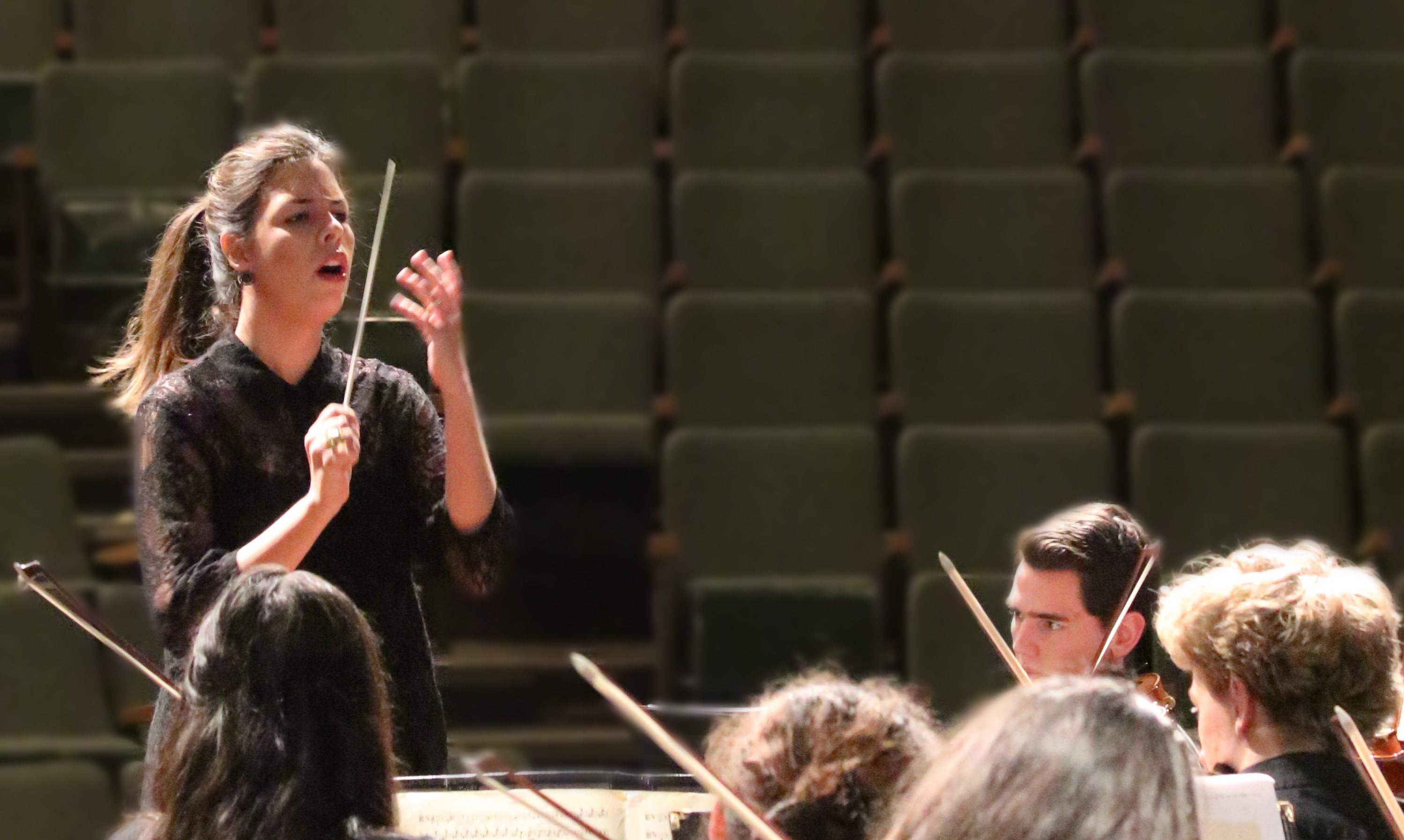University of Manitoba music graduate student Mariana Menezes first became interested in conducting in high school. The conductor of the small ensemble she was a part of sparked her interest in the field.
“I always thought that he was performing the music of everyone, not just mine or my colleague’s music. And everything that he was feeling was being projected. I’ve always been a passionate musician so I want to pass my feelings to everyone and make it possible to communicate with music,” said Menezes.
“It’s very difficult because music is transmitted in space. That’s why we have scores – to translate the music. Then it’s up to the conductor to help the orchestra with the translation.”
Menezes, originally from Brazil, chose to complete her degree at the U of M due to the opportunity to practice her craft with professionals in her field.
“Canada has a sense of community that I think is amazing; everything is connected. I can go to Winnipeg Symphony Orchestra rehearsals and I can practice here at the university. The most amazing thing about Winnipeg is that artists in general – from a musician to an architect – can have time to reflect about what they are doing, about how to be more creative, and about how to be more expressive,” said Menezes.
“One of the reasons I am here is because I have the opportunity all the time to build my repertoire. At most schools, conducting students can only watch, then they don’t have much opportunity to practice – and musicians need to practice.”
At the U of M, Menezes has the opportunity to work with Julian Pellicano – an instructor in the faculty of music who serves as resident conductor for the Winnipeg Symphony Orchestra (WSO) and music director of the University of Manitoba Symphony Orchestra (UMSO).

Alongside Pellicano, Menezes recently worked with UMSO and the Brandon University Orchestra to perform at the WSO’s Mahlerfest. At the festival, Menezes conducted Schubert’s eighth symphony (the “Unfinished”), and also worked in tandem with Pellicano to conduct Mahler’s first symphony. While Pellicano conducted the orchestra on stage, Menezes worked with the trumpet section that was situated backstage.
“I conducted Schubert, but it was really difficult for everyone because we were playing Mahler that night – a very hard piece to play – and they had to rehearse Schubert too, which everyone knows really well,” she explained.
“The musicians worked really hard; they did an amazing job. The project that my professor created for Mahlerfest was amazing, it was huge.”
For conducting projects, such as the pieces for Mahlerfest, Menezes has a rigorous preparation routine.
“First, I spend hours with the score trying to figure out what the composer really wanted. I research a lot about the composer’s life, especially their life at that moment – how the work he did in this moment compares to another work he created in that same moment. I research a lot, I spend hours with each score.”
“Then I study in silence, moving my arms and trying to project what I have in my mind and in my heart through my hands, and make it clear to the orchestra.”
While working to gain as much practical experience conducting as possible, Menezes is also writing her thesis on conducting ballet.
When conducting an opera, according to Menezes, the orchestra is able to hear the performers on stage and play accordingly. During a ballet, the conductor is the integral connecting piece.
“I find it very interesting because everything relies on the conductor. For the ballet, they can’t see anything; the conductor is the only connection between what is happening with the orchestra and what is happening with the dance on stage,” said Menezes.
“There is almost nothing written about it. I’m researching with newspapers and interviews, and observing, basically. We see conducting of orchestras, operas, wind ensembles, but not ballet.”
As Menezes wraps up writing her thesis, she has started to look forward to the next semester of her studies and her upcoming projects. Over the winter break, she will be working with UMSO on the U of M Opera Theatre’s production of La Cenerentola before transitioning into her final semester at the U of M.
“Next term, I’m going to conduct a lot – it’s my last term here. I’m going to conduct a piece from a new composer, who is a student here. And I’m going to conduct two overtures; I’m going to work a lot to finish my degree happy.”
This article was originally published in the Gradzette.


